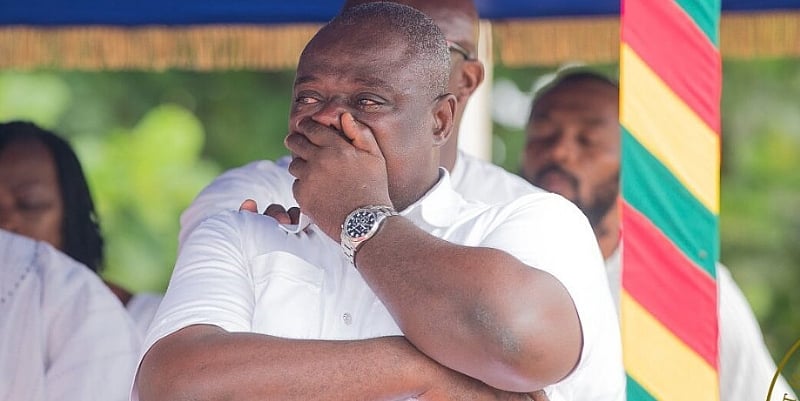The controversy surrounding the late President John Evans Atta Mills’ administration has been reignited by recent allegations made by investigative journalist Manasseh Azure Awuni against Samuel Koku Anyidoho, former Deputy General Secretary of the National Democratic Congress (NDC) and former Head of Communications at the Presidency during the Mills era. Azure, in a yet-to-be-released book project, reportedly claims that Anyidoho wielded more power and influence than then-Vice President John Dramani Mahama during their time in office. This assertion has sparked a strong reaction from Anyidoho, who has publicly denied the claim and threatened legal action against the journalist, demanding proof of such an extraordinary power dynamic. The ensuing dispute centers around the interpretation of Anyidoho’s role and influence within the Mills administration, raising questions about the accuracy and basis of Azure’s reporting.
Anyidoho, who currently heads the Atta Mills Institute, a think tank dedicated to the late president’s legacy, vehemently refutes the notion that he held more sway than the Vice President. He maintains that Azure’s claim is a misrepresentation of his position and responsibilities within the government. Anyidoho served as the Head of Communications from 2009 to 2012, a role that undoubtedly involved close proximity to President Mills and considerable influence in shaping public perception of the administration. However, he argues that this position, while significant, did not translate to the kind of overarching power that could supersede that of the Vice President, who constitutionally held the second-highest office in the country. He underscores the hierarchical structure of government, emphasizing that the Vice President’s constitutional authority and proximity to the presidency naturally placed him in a position of far greater influence than any communication director could possibly wield.
The controversy is further complicated by the nature of the interaction between Anyidoho and Azure. Anyidoho confirms that he participated in an interview with Azure for the forthcoming book, willingly answering the journalist’s questions. He now argues that Azure has misrepresented his statements or taken them out of context to create a misleading narrative about his power within the Mills administration. This raises questions about the journalistic integrity of Azure’s work and the potential for misinterpretation or misrepresentation of information shared during the interview process. Anyidoho’s insistence on legal action suggests a belief that Azure has not only misconstrued his words but has also potentially defamed him by portraying him as more powerful than the then-Vice President.
The core of Anyidoho’s argument revolves around the defense of his reputation. He perceives Azure’s claims as a direct attack on his credibility and legacy, portraying him as a manipulative figure operating behind the scenes with undue influence. This portrayal, he insists, is not only inaccurate but also damaging to his public image and professional standing. He asserts that his primary concern is to salvage his reputation from what he considers to be a false and damaging narrative propagated by Azure’s reporting. The threat of legal action serves as both a defense mechanism and a demand for accountability, compelling Azure to substantiate his claims with concrete evidence.
The public disagreement between Anyidoho and Azure brings the issue of journalistic ethics and accuracy to the forefront. It highlights the potential for misinterpretations and the importance of rigorous fact-checking in investigative reporting. While Azure’s book has not yet been released, the pre-publication controversy has already generated significant debate and speculation about the credibility of the allegations. The case underscores the responsibility of journalists to ensure the accuracy of their reporting, particularly when dealing with sensitive and potentially damaging claims about public figures. The legal action threatened by Anyidoho could serve as a test case for the balance between freedom of the press and the right of individuals to protect their reputation from potentially defamatory statements.
Ultimately, the resolution of this dispute will likely depend on the evidence presented by both sides. If Azure can substantiate his claims with concrete proof of Anyidoho’s extraordinary influence within the Mills administration, it could significantly reshape public understanding of the power dynamics within that government. However, if he fails to provide such evidence, it could damage his credibility and raise questions about his journalistic practices. The legal proceedings, if they indeed take place, will offer a platform for both sides to present their arguments and evidence, ultimately leaving it to the court to determine the veracity of Azure’s claims and the extent of any damage caused to Anyidoho’s reputation. This case serves as a stark reminder of the power of words and the importance of responsible reporting in the public sphere.


